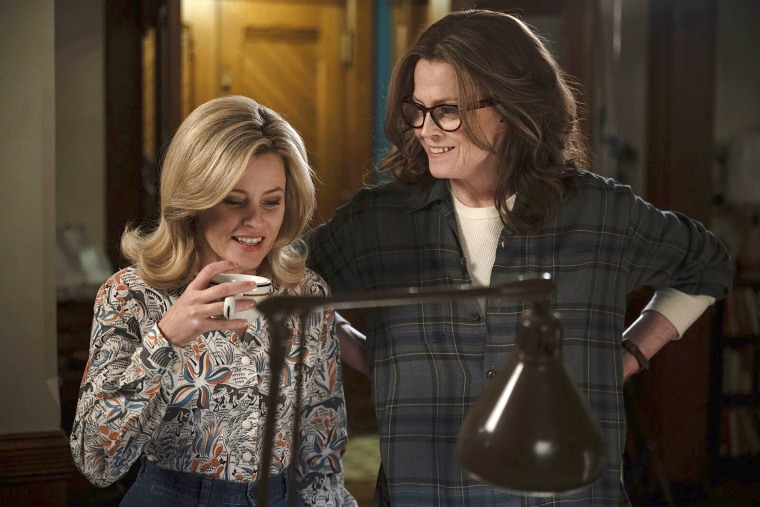The timing may have seemed serendipitous for the release of a film about abortion activists in the 1960s, but in reality, the highly-anticipated historical drama “Call Jane” had been in the works for seven years, before anyone could have ever imagined the end of Roe v. Wade.
The docudrama hits theaters Friday, just four months after the Supreme Court overturned the decades-long ruling and two weeks before the November mid-term elections, where the issue of abortion is back on the ballot.
The film, starting Sigourney Weaver and Elizabeth Banks is set in Chicago in 1968, five years before Roe. It follows the story of a pregnant housewife [Banks] who finds herself faced with a life-threatening condition if she continues her pregnancy. After she is refused an abortion by a team of all-male doctors, Banks’ character finds an underground network of women – known as the Jane Collective – who save her life by helping to provide the procedure.
Weaver – who plays Virginia, a tough-love activist leading “the Janes” – recently joined the film’s director Phyllis Nagy on “Morning Joe” to discuss how the movie approaches the topic of abortion differently and why it resonates more profoundly in the post-Roe era.
“[The film] focuses on how important it is for women to get this kind of healthcare,” Weaver told “Morning Joe” co-host Mika Brzezinski. “The big difference of course is that anyone involved in abortion, including the woman, is criminalized and I think that’s quite alarming.”
For Nagy, the project underscored that access to safe abortions continues to be a critical part of reproductive healthcare. “What we had to constantly remind people of is this is part of women’s healthcare,” she told Brzezinski. “I wanted to do this film to, in some way, normalize the entire procedure and talk about these issues in a less heated way than perhaps it had been talked about politically.”
To that end, the Oscar-nominated director shows the procedure in the film, tackling themes including judgement, race and gender equity. “I think that Virginia and the ‘Call Jane’ group are there not to judge the women but to be on her side completely, to give her all the support she needs because the procedure is already challenging in many ways,” Weaver said. “It refocuses the subject as the woman and what she goes through personally and physically.”
For Nagy, that was the most important aspect of the project but also the most challenging. “I felt absolutely determined to show an entire procedure from beginning to end … and that is basically focused on the experience of the woman,” she reiterated. “Arranging that first procedure sets up every other procedure in the film, culminating in the last procedure, which is very different than the one we begin with, all done without – we hope – the kind of judgement that puts people on the defensive.”
As voters will soon decide the fate of abortion access in their communities across the country, Weaver said she hopes the film inspires action. “What the movie does is show the power of women when we come together and how much that respect and allowing the woman to have dignity – how important that is, how effective it is – so that when we go to the polls on November 8th we can make our voices heard.”

